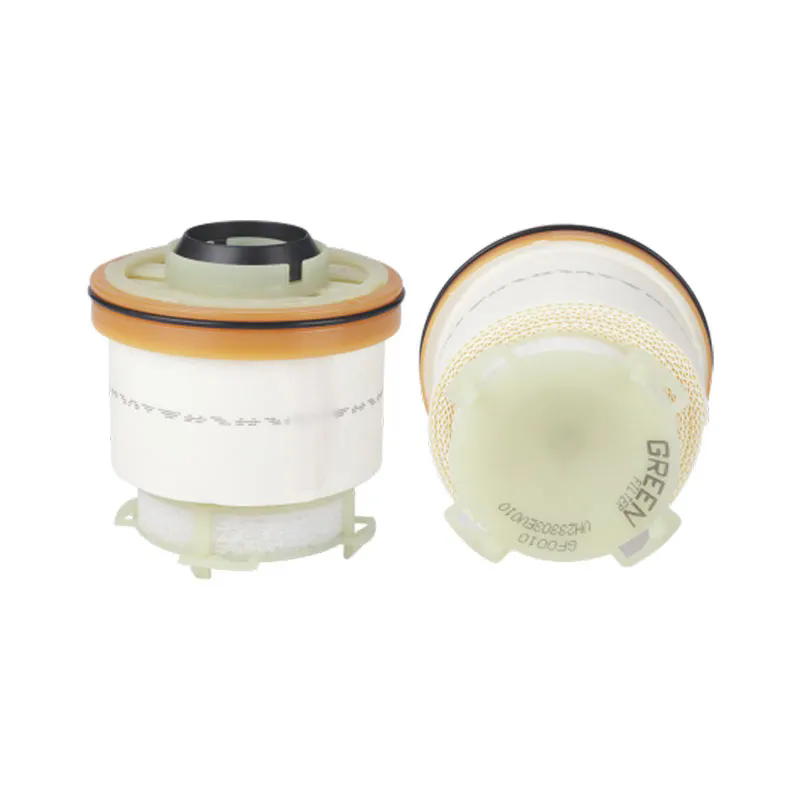Why Is a Hydraulic Filter Essential for Your Equipment’s Longevity?
2024-12-06
Hydraulic systems are the backbone of many industrial, agricultural, and construction machines. Whether it’s in a crane, tractor, or factory machinery, hydraulic systems provide the force needed to perform heavy-duty tasks. However, just like any system relying on fluid power, hydraulic systems are vulnerable to contaminants. This is where hydraulic filters come in. But why exactly is a hydraulic filter so important, and how does it ensure the smooth operation of your equipment? Let’s dive in.
1. What Is a Hydraulic Filter?
A hydraulic filter is a device used in hydraulic systems to remove impurities such as dirt, dust, water, and metal particles from the hydraulic fluid. These contaminants can cause wear and tear on the system components, leading to reduced efficiency, breakdowns, and costly repairs. Hydraulic filters are usually installed in the return line, suction line, or pressure line, depending on the type of filtration required.
2. How Does a Hydraulic Filter Work?
Hydraulic filters operate by passing the hydraulic fluid through a mesh or pleated filter element. As the fluid flows through the filter, contaminants are trapped in the filter medium, allowing only clean fluid to pass through. This process prevents dirt and debris from reaching sensitive parts of the hydraulic system, such as pumps, valves, and actuators, where they could cause significant damage.
There are two main types of hydraulic filters:
- Pressure Filters: These filters are used in the pressure line and filter the fluid before it reaches critical components under high pressure.
- Return Filters: These are placed in the return line, filtering the fluid before it returns to the reservoir, ensuring that contaminants do not get back into the system.
3. Why Are Hydraulic Filters So Important?
The importance of hydraulic filters cannot be overstated. Here are some reasons why they’re critical to the performance and longevity of hydraulic systems:
- Prevent Wear and Tear: Contaminants in hydraulic fluid can lead to excessive wear on pumps, valves, cylinders, and other components. A hydraulic filter ensures that these harmful particles are removed before they cause damage.
- Increase Equipment Efficiency: Clean hydraulic fluid allows the system to function more efficiently, maintaining optimal flow and pressure. Contaminants can disrupt the fluid dynamics, leading to energy losses and decreased system performance.
- Extend Equipment Life: By preventing contamination, hydraulic filters help extend the lifespan of the entire hydraulic system. This reduces the frequency of repairs and replacements, saving businesses time and money.
- Reduce Downtime and Maintenance Costs: Hydraulic filter maintenance is relatively simple and inexpensive compared to the costs of repairing or replacing damaged components. By using filters effectively, you can avoid costly breakdowns and minimize downtime.
- Improve Safety: Contaminated hydraulic fluid can cause malfunctioning or failure of critical systems, which in turn can pose safety risks. A reliable hydraulic filter ensures that the system operates smoothly and safely.
4. How Do You Choose the Right Hydraulic Filter?
Choosing the right hydraulic filter depends on several factors, including the type of hydraulic system, the operating environment, and the level of filtration required. Here are some things to consider when selecting a hydraulic filter:
- Filter Micron Rating: The micron rating indicates the size of particles the filter can remove. The lower the micron rating, the finer the filtration. A higher level of filtration may be necessary for systems with high precision or sensitive components.
- Flow Rate: The filter should be able to handle the flow rate of the hydraulic system without causing excessive pressure drops. A filter that’s too small for the flow rate can restrict fluid flow and cause inefficiency.
- Filtration Media: Hydraulic filters are made from various materials, including paper, wire mesh, and synthetic fibers. The choice of media affects the filter's capacity and efficiency.
- Operating Conditions: Consider the temperature, pressure, and contaminants present in your hydraulic system. For example, some filters are designed for high-pressure systems, while others are better suited for systems that operate in harsh environments with a lot of dirt or moisture.
5. How Often Should You Change a Hydraulic Filter?
Changing the hydraulic filter at the right intervals is crucial for maintaining the system's efficiency. The frequency of filter replacement depends on factors like the system’s usage, operating conditions, and the type of filter being used. Here are some general guidelines:
- Monitor the Pressure Drop: Most hydraulic filters come with pressure gauges or indicators that show when the filter is clogged. A significant pressure drop usually signals that it’s time to change the filter.
- Regular Maintenance Checks: Perform routine checks on the hydraulic fluid’s cleanliness. If the fluid appears dirty or contaminated, it may be time to replace the filter.
- Manufacturer’s Recommendations: Always follow the manufacturer’s recommended maintenance schedule for your specific system.
6. What Happens If You Don’t Use a Hydraulic Filter?
Operating a hydraulic system without a filter—or with a poorly maintained filter—can lead to a number of issues:
- Increased Wear on Components: Without proper filtration, contaminants will circulate through the system, causing excessive wear and eventually leading to system failure.
- System Failure: If debris gets into the hydraulic components, it can cause blockages, damage to seals, or complete failure of the pump, resulting in costly repairs and downtime.
- Higher Maintenance Costs: Without a filter, the system will require more frequent and expensive repairs. In the long run, not investing in proper filtration can cost far more than regularly maintaining the filters.
7. Conclusion: Why Invest in a Hydraulic Filter?
A hydraulic filter is a relatively small but incredibly important component of any hydraulic system. By ensuring that your hydraulic fluid is free of contaminants, you can protect your machinery, increase efficiency, and extend the lifespan of your equipment. Regular maintenance and timely filter changes are crucial for optimal system performance and to avoid costly repairs. Investing in a good-quality hydraulic filter is one of the most cost-effective ways to ensure that your equipment runs smoothly and safely, providing you with long-term reliability and peace of mind.



